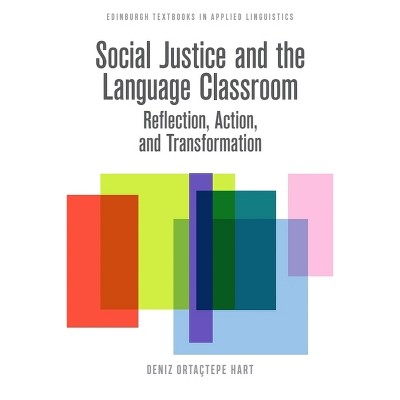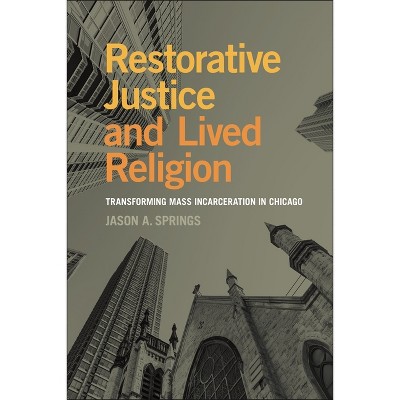Madwomen in Social Justice Movements, Literatures, and Art - (Women's Studies) by Jessica Lowell Mason & Nicole Crevar (Paperback)

About this item
Highlights
- 'Madwomen in Social Justice Movements, Literatures, and Art' boldly reasserts the importance of the Madwoman more than four decades after the publication of Sandra Gilbert and Susan Gubar's seminal work in feminist literary criticism, 'The Madwoman in the Attic'.
- Author(s): Jessica Lowell Mason & Nicole Crevar
- 264 Pages
- Social Science, Feminism & Feminist Theory
- Series Name: Women's Studies
Description
Book Synopsis
'Madwomen in Social Justice Movements, Literatures, and Art' boldly reasserts the importance of the Madwoman more than four decades after the publication of Sandra Gilbert and Susan Gubar's seminal work in feminist literary criticism, 'The Madwoman in the Attic'. Since Gilbert and Gubar's work was published, the Madwoman has reemerged to do important work, rock the academic boat, and ignite social justice agency inside and outside of academic spaces, moving beyond the literary context that defined the Madwoman in the late 20th century.
In this dynamic collection of essays, scholars, creative writers, and Mad activists come together to (re)define the Madwoman in pluralistic and expansive ways and to realize new potential in Mad agency. This collection blazes new directions of thinking through Madness as a gendered category, comprised of a combination of creative works that (re)imagine the figure of the Madwoman, speeches in which Mad-identifying artists and writers reclaim the label of "Madwoman," and scholarly essays that articulate ambitious theories of the Madwoman.
The collection is an interdisciplinary scholarly resource that will appeal to multiple academic fields, including literary studies, disability studies, feminist studies, and Mad studies. Additionally, the work contributes to the countermovement against colonial, sanist, patriarchal, and institutional social practices that continue to silence women and confine them to the metaphorical attic. Appealing to a broad audience of readers, 'Madwomen in Social Justice Movements, Literatures, and Art' is a cutting-edge inquiry into the implications of Madness as a theoretical tool in which dissenting, deviant, and abnormal women and gender non-conforming writers, artists, and activists open the door to Mad futurities.
Review Quotes
'Madwomen in Social Justice Movements, Literatures, and Art' extends Sandra Gilbert's and Susan Gubar's influential work, 'The Madwoman in the Attic' for the 21st century by revealing how madness as a category has been socially constructed and weaponized against disenfranchised voices. Featuring a new framework that includes work by activists, artists, and academics, this expertly edited collection draws on autoethnographic approaches, disability studies, and mad feminist discourse to center mad subjectivities and disrupt traditional structures of academia. In this way, 'Madwomen' reclaims the derogatory term "madness" and reveals ways in which women have been empowered by both their anger and their so-called disability, allowing them to think outside of rigid patriarchal frameworks and offer reparative alternatives. In so doing, this collection reveals that literature and art indeed have a social role to play-that they are, by virtue of their own madness, social justice agents informed by cultural circumstances and embodied experience alike.
Dr. Aimee Pozorski
Professor of English
Coordinator of the Racial Justice Certificate Program
Co-coordinator of the American Studies Program
Co-executive editor of Philip Roth Studies
Central Connecticut State University
In 'Madwomen in Social Justice Movements, Literatures, and Art', editors Nicole Crevar and Jessica Lowell Mason assemble a range of incisive and deeply feminist essays that reconsider and resituate the madwoman trope indelibly traced by Gilbert and Gubar. Drawing from texts as wide-ranging as Woolf's 'Orlando', Janet Frame's 'Faces in the Water', Zee Edgell's 'Beka Lamb', Rayda Jacobs' 'Joonie', and Haile Gerima's 'Bush Mama', these contemporary considerations of the madwoman literary trope illuminate the continued urgency and necessity of grappling with the mad, the crazy, the uncontainable, in literary texts. Most exciting about this collection are the creative "mad disruptions" sprinkled between the chapters. The writing in these chapters-innovative, challenging, energizing-reminds readers why literary arts endure and what is at stake in challenging ideas surrounding women and madness, particularly today.
Dr. Julie R. Enszer, editor and publisher of 'Sinister Wisdom'
Unparalleled in its scope and variety, this volume makes an essential contribution to mad studies, feminist studies, and their generative intersections.
Dr. David Schmid
Department of English
University at Buffalo











